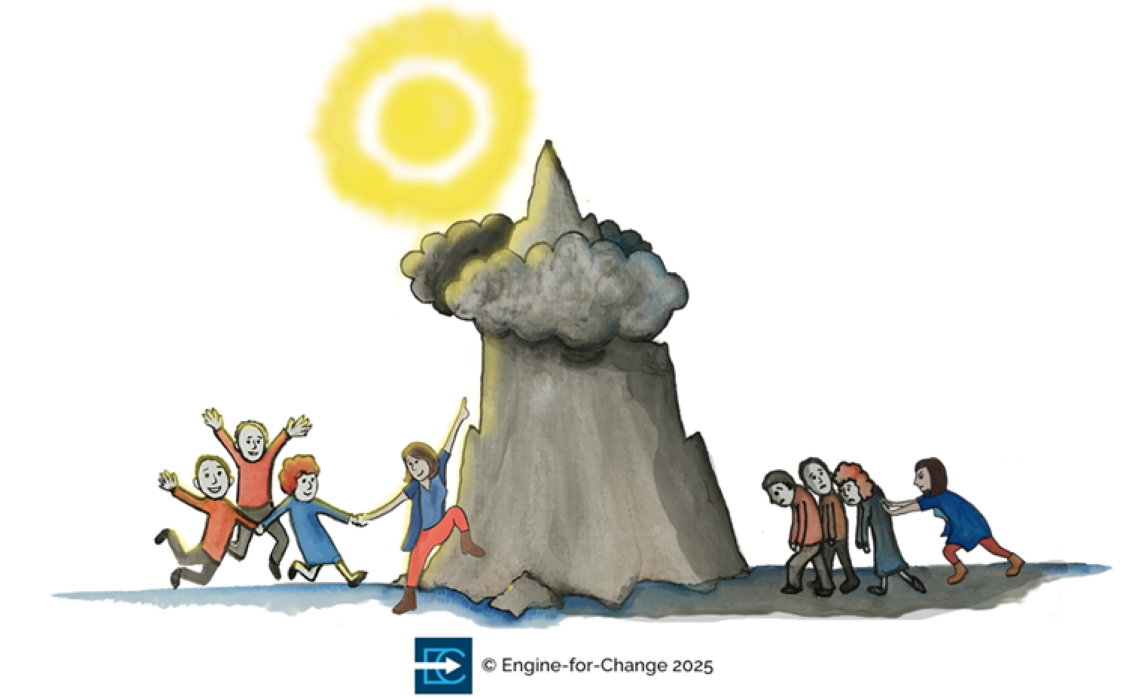Artificial Intelligence (AI) has been impacting everything from customer service to healthcare.
However, one area where AI is significantly driving change is change management.
As you know, change management guides individuals, teams, and organizations through transitions to achieve successful outcomes, by using specific adoption strategies and tools.
Sometimes traditional change management approaches fall short dealing with the complexities and uncertainties of change.
Let’s take a look at how AI makes things simpler.
Primarily, AI revolutionizes change by adding operational efficiency and effectiveness.
Using AI, organizations can better understand complex data sets including (but not limited to) absenteeism, percentages of deadlines met, and more.
These data sets provide insights into employee engagement and enthusiasm.
Additionally, it lets them develop smart strategies for managing change.
These can include collating and analyzing confidential feedback, adjusting change schedules to accommodate tolerance for change, and more.
Machine learning algorithms and other AI systems analyze large quantities of data at high speeds.
They identify patterns and trends that human analysts may overlook – a big one is how much employees correctly use new technology that helps them do their jobs better.
As a result, this provides insights that are invaluable for creating a strategic roadmap for change that takes performance metrics, feedback, resistance, and adoption rates into consideration.
AI can create visuals in the form of charts and graphs that make it easy for managers and leaders to understand the situation and spend more brain bandwidth on solutions than analysis.
Furthermore, AI enhances communication during the change management process.
We find this at the core of any successful change initiative.
AI technologies like natural language processing (NLP) and machine learning can refine internal and external communication.
Using chatbots powered by NLP, for instance, businesses ensure continual communication by providing intelligent coaching.
Since AI can identify questions, you can create prompts in chatbots that answer with tutorials, answers created by humans, and more.
This allows them to address issues immediately, mitigate concerns, and keep everybody in the loop about the change process.
Predictive analytics is a subset of AI that can generate early warnings during the change management process.
By analyzing historical and real-time data, AI-powered predictive models help organizations anticipate issues and obstacles before they arise.
For example, based on average hours worked, absenteeism rates, and retention/turnover rates, does the organization realistically have more bandwidth, or do they need to bring on consultants, temps, or even new employees?
Is there time for the training needed to implement a new software?
Are there existing issues with service delivery the company must address before doing something new?
This makes it easier to identify potential concerns and develop effective strategies to handle them in advance.
Taking all of this into consideration reduces risks and costs associated with the change process.
AI redefines the decision-making process by providing evidence-based insights that drive smarter decisions.
AI algorithms can delve deep into data sets and generate precise, insightful data findings.
By synthesizing employee feedback into trends, looking at previous trends in change adoption, and highlighting potential obstacles (such as existing issues with service delivery), AI can point change managers in the right direction and point them in the right direction.
Relying on these data-driven decisions can minimize biases and errors that show up in human-led decision-making processes.
By assigning responsibility to “the machine”, it eliminates the politics of fear that can lead managers and analysts to tell leadership what they want to hear, or carefully cushion feedback to the point it loses impact.
To put it directly, “this is the AI talking, not me!”
As a result, it facilitates more informed and effective decisions.
AI provides individualized change management support, too.
AI-powered platforms deliver personalized guidance to employees adjusting to new systems or processes.
These platforms adapt learning content and delivery style based on individual needs.
This improves the user’s experience and increases their engagement.
As a result, individualized support fosters quicker and more effective adaptation to change.
Meanwhile, AI integration fosters a change-ready culture.
Through predictive analytics and machine learning, AI identifies employees’ behaviors and attitudes towards change.
This surfaces potential resistance to change before it can derail things.
Once these hurdles are identified, organizations can devise strategic interventions to address resistance.
This builds a proactive, resilient change-ready culture and encourages adaptation and innovation.
The automation capabilities of AI also streamline administrative tasks.
Because of this, managers and leaders can focus on the strategic aspects and human elements of change management.
In conclusion, AI is an instrumental driver of change management.
Among other things, it
- aids a better understanding of complex data sets,
- enhances communication,
- predicts potential issues,
- supports decision-making processes,
- provides individualized support,
- fosters a change-ready culture, and
- automates administrative tasks.
When organizations leverage these capabilities, they enjoy more successful change.
But remember — it’s not about replacing the human element of change management.
Rather, it’s about leveraging AI to support and enhance this human element for more successful outcomes.







